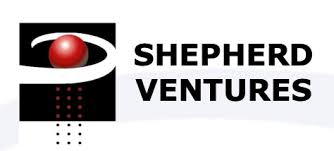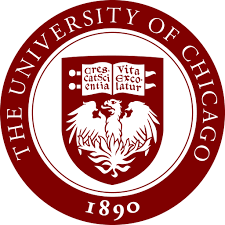
Quick Bio
I'm Gabriel True. I was born in Germany, spent almost a decade in California, grew up in Kentucky, and studied in Chicago. Now I live in Atlanta, working full-time as a data scientist. I've always gravitated toward math and science — I entered my first math competition in kindergarten and even made a YouTube channel in middle school breaking down the science behind The Martian.
In high school, I competed nationally in math and science competitions, which pushed me toward studying Computer Science and Economics at the University of Chicago. I ended up specializing in data science and machine learning. These are areas I enjoy because they combine math, creativity, and real-world problem solving.
Outside of work, I like to travel, explore new interests, and challenge myself in different ways — right now, that includes learning piano and working on personal projects. I'm always looking for new ways to grow.

Interests
When it comes to working, I find mathematics, statistics, and coding incredbily fascinating. Specifically, I enjoy the following:
- Machine Learning
- Time Series Analysis
- Algorithms
In addition to work, I also spend my time intersted in these areas:
- Music
- Basketball
- Learning Languages
- Discovering New Places
- Working Out
Educational Background
The University of Chicago
The University of Chicago was the perfect place to discover my intellectual interests while gaining a cross-disciplinary education. Specifically within my areas of study, I've narrowed my coursework down to the 4 most impactful classes from my time at the College. Coincidentally, all three classes were either graduate classes or classes dual-listed as both undergraduate and graduate level.
Honors Combinatorics
The most difficult class I encountered during my time at the University of Chicago. Taught by László Babai, I certainly learned the value of time management in this class. What fascinated me so much about this class was the way we would learn a specific sub-field of math in detail in order to logically deduce and prove fundamental discoveries prevalent in statistics and probability theory.
Machine Learning and Large Scale Data Analysis
After taking several classes in machine learning, this was the culmination of all I had learned. Mathematically rigorous and practicial, we spent half the time mathematically proving the fundamental equations behind essential (and more esoteric) models within machine learning, and the other half coding practical models to apply theory such as sentiment analysis, classification, and diffusion models.
Scientific Visualization
Taught by Gordon Kindlmann, this class was the perfect marriage of coding and mathematics. We implemented various linear algebra and vector calculus techniques such as convolution and tensor operations in C to create projects such as a volume renderer and isocontour mapper. Programming in C, we had the opportunity to leverage parallel computer and optimization of memory.
Causal Inference
In my previous statistics classes, I was warned about the dangers of making causal claims from metrics obtained through statistical analysis. This class provided me the opportunity to finally make these claims and understand the underlying assumptions necessary to perform Causal Analyses.
Experience
My trajectory has not been linear and this has provided me an enriching wealth of experiences which have contributed to what I bring to a job.

Current Employment: Associate Data Scientist | Aimpoint Digital
Aimpoint Digital is a Data and AI consulting firm. I am currently employed as an Associate Data Scientist going through the New Consultant Development Program (NCDP).

Data Analyst | CareerVillage
Working at CareerVillage helped provide me the tools that I use to this day in the field of data science. Through PostgreSQL and BigQuery queries, I was able to help integrate data into dashboards for both technical and nontechnical teams. Using hundreds of thousands of LLM logs, I performed sentiment analysis on the chats. Using these findings and a variety of statistical analyses, I sought to identify age-related bias in chats. Furthermore, I helped to refactor a OpenAI summarization program. In doing so, I developed a recursive summarization pipeline.

Quantitative Developer Intern | AlphaOcean
At AlphaOcean, I had the opportunity to implement a variety of programmed deliverables. Using monaco library in Python and data such as oil spot & future prices and maritime searoutes, I helped to develope a monte carlo simulation to advise ships on optimal fueling routes based on fuel pricing. Furthermore, due to fuel commingling constraints, we had enough information to implement a linear programming algorithm (Through the PuLP library) which informed ships of their prior fueling allocations if they had lost track of which tank they fueled.

Quantitative Analyst Intern | Shepherd Ventures
At Shepherd Ventures, I was placed on the "AI Injection Team". Essentially, this meant that my specific job was to help integrate machine learning capabilities within the investing scheme. With the team, I helped combine the Davies-Bouldin Index with a modified Kmean Clustering algorithm to establish an asset preselection algorithm. From there, I used and helped integrate a variety of techniques to help forecast volatility and optimize portfolio weighting. Forecasting techniques included ARMA, GARCH, and EGARCH models on public, historic financial data. Furthermore, we utilized mean-variance optimization to ascertain the optimal weighting of assets.

Student Technological Assistant | University of Chicago Department of Physics
I worked part-time here during college for around a year. One of my primary jobs was helping run, modify, and create pages on the physics department's website. Doing this oftentimes required open communication and compromise. For example, some individual researchers may request a more personalized profile on the website while protocol would require a particular template. Communicating with the department heads and these researchers helped reach a compromise. Other than that, I was tasked with gathering, analyzing, and presenting data pertaining to both the website and other events held by the physics department.

Strategic Partnerships Intern | TechSoup Global
While not as technically advanced as the other positions, this was a great beginning to the world of business. As a strategic partnerships intern, a lot of my work revolved around researching best practices and tips that TechSoup partnered with. In particular, I researched CSR & ESG trends in companies partnered with TechSoup to understand how to coordinate with the missions of such companies. When collecting internal data, I was offered the chance to use PowerBI. I was granted the opportunity to interview some of TechSoup's corporate partner representatives, and I presented the findings of my research to the company -- including executives. This was a great opportunity to develop some of the soft skills that I use to this day.
Resume
For an itemized account of my experiences, feel free to download my resume.
Click here to view resumeContact Me
To contact me, please feel free to email me at gabrieltrue2004@gmail.com